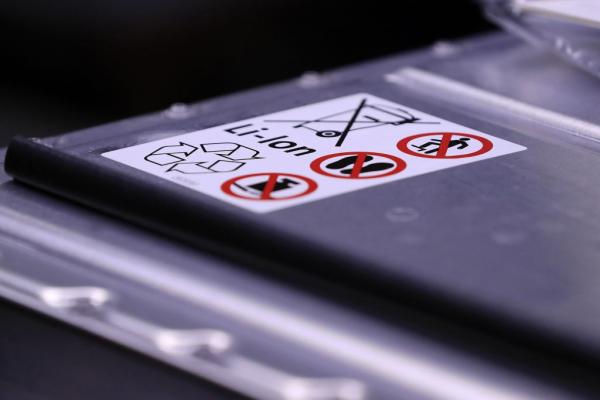Civil society organisations have been at the forefront of fighting the pandemic in Europe, often stepping in at a moment’s notice to plug huge gaps in the public provision of social services and healthcare. Meeting remotely with the EESC on 12 May, they asked to be at the table with EU institutions and governments to help design a recovery plan for a sustainable Europe.
A network of umbrella civil society organisations, which works closely with the EESC under the Liaison Group, gathered for a virtual meeting with the EESC on 12 May to discuss the challenges their members across Europe have been facing in dealing with the COVID-19 crisis and to call for a key role in designing Europe’s recovery plan.
Among them were social services and healthcare providers, medical associations, volunteers, philanthropists, student associations, human rights defenders, cooperatives, engineering services and many other grassroots organisations.
“I believe it is important to focus on the fragility of our democratic systems and the weaknesses of our public and social services and we need to make that a priority in the recovery. We have heard many say that after COVID-19 there is no going back to business as usual, but the truth is that there needs to be the political will to change things at the highest level,” said Brikena Xhomaqi, interim co-chair of the EESC’s Liaison Group with civil society.
“Now more than ever, #EUCivilSociety has a critical role to play in shaping a new recovery plan and pushing for prompt and responsible implementation,” said EESC President Luca Jahier. “The COVID-19 crisis has made it clear that we need economic, social and environmental sustainability together with sustainable healthcare. The Sustainable Agenda must be the strategy to lift us out of this unprecedented crisis.”
Following the meeting, the two Liaison Group co-chairs issued a joint statement, available here, which sums up civil society’s pleas.
Three key challenges were flagged by the many speakers who took the floor:
- the shrinking space for civil society, with some governments threatening the rule of law and clamping down on basic freedoms under the guise of national security, and many critical decisions being made without consulting citizens;
- the financial constraints many organisations have come under as their members, hit by the economic fallout of the crisis, fail to pay their fees and donors withdraw or divert funds from everything that is not economic recovery or health-related expenditure. Measures put in place to help the economy should therefore also prop up the no-profit sector, the organisations pleaded;
- the huge gaps in social services and health care systems brought to light by the pandemic. Civil society has shown immense resilience and flexibility in coming to the aid of governments, with care professionals putting in heroic efforts and service providers going digital overnight to ensure critical services under dire circumstances. In some cases, they have been the only thing standing in the way of disaster.
The crisis has acted as a magnifier of the huge cracks in our systems, they agreed, shedding light on the glaring social injustice and inequalities that have existed in our societies for years.
The EU, on the other hand, has not been visible enough. The Commission’s initiatives have shown much positive will, they recognised, but so far have failed to reach the grassroots level.
While it is true that Europe has done more in four weeks than it did in four years when the financial crisis broke out, EESC President Luca Jahier said, it is also true that this mobilisation has failed to bring relief to the people in need, and that many funds have been enmeshed in red tape at national or local level.
Time to reset it the economy
How should the cracks in our systems be mended?
The recovery plan must have people’s well-being at its heart and use public money in the public interest. Recovery packages should be firmly guided by a compass which prioritises environmental sustainability and social justice, according to civil society organisations.
Civil society is resilient and has great agility in coming together, and so needs to be recognised as an equal partner in mending those cracks as we start to come out of the emergency and embark on the long road to recovery.
In addition to being enshrined in the joint statement, the input provided by the Liaison Group will feed into the work of a special EESC sub-committee, chaired by President Luca Jahier, which is to adopt a resolution in June with proposals to EU policymakers on how to address the post-covid recovery.
Background
The Liaison Group is a network of civil society organisations not directly represented at the EESC. It provides a framework for political dialogue and cooperation between the EESC and many European organisations and networks on cross-cutting issues of common interest.
The Liaison Group is involved in organising joint initiatives and events, as well as hearings, conferences and workshops, on topics of shared interest. Its major annual event is the Civil Society Days, held jointly with the EESC.
For more information, please contact
Daniela Marangoni
Press officer



